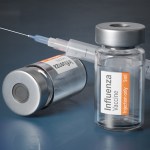HEALTHCARE CRISIS
Free State clinics report – patients can pay R50 to jump the queue, but more obstacles await

Long queues, critical staff shortages, medicine stock-outs and privacy issues were among the problems in the Free State public health system outlined in a report-back by the Ritshidze Project.
On Thursday, 29 September the Ritshidze Project, led by the Treatment Action Campaign (TAC), tabled its second report on the state of the public healthcare system in the Free State during a community meeting in Bloemfontein.
Ritshidze is a community-led monitoring project, as opposed to a research study, and the report stressed that the results were specific to the facilities surveyed and were not applicable generally, with the same applying to public healthcare users.
TAC general secretary Anele Yawa told attendees that “Section 27 of the Constitution gives us as the citizens, those who work in South Africa and those who stay in South Africa, a right to access quality healthcare services; anyone who violates Section 27 and denies people this right is violating the Constitution”.
“If we do not engage with political leaders and officials and address issues of staff shortages and human resources, you will find that if these are not reported, there will be a lot of cases of medical negligence and our government will be forced to pay a lot of money in terms of compensation, which, in our view, such money could’ve been used to purchase services.”
Read more in Daily Maverick: “Report finds some improvement at Mpumalanga clinics, but serious challenges remain”
One of the main issues raised was staffing: this year sample size for facility managers was larger than in previous surveys, but only 21% reported having enough staff. Public perception of adequate staffing to meet community needs had also decreased, with the most commonly reported shortages being nurses, security guards, nursing assistants, pharmacists, cleaners and general assistants. This coincided with reported vacancies at the medical facilities.
Residents reported not receiving help on time despite arriving and queuing from early in the morning, and with the pressures of still having to go to work this meant they left without the treatment they needed, such as contraceptives and HIV medication.

Patients at the Phahameng Bultfontein Clinic. Long waiting times are among 11 key issues outlined in the second edition of a new Ritshidze State of Health report in the Free State. (Photo: Rian Horn / Ritshidze)
Some people said they would arrive at a clinic at 6am and spend the whole day there, only to leave empty handed at 4pm, which was largely because there was “only one nurse working”.
“I took my child to Phuthaditjhaba Clinic last Thursday for his six-month [check-up]. When he was supposed to be tested the sister in charge said that she was tired and they suggested I come back on Sunday. I explained I could not make it on Sunday, I was number three on the queue, but the sister in charge said that there’s nothing they can do for me since I was not able to come back on Sunday,” said one resident.
Visit Daily Maverick’s home page for more news, analysis and investigations
One man who had gone to the same clinic said there were people who, if they paid R50, were allowed to skip the queue, which resulted in consultation delays.
Ritshidze’s recommendations included:
- By April 2023 the Free State health department should fill 80% of vacancies in the province (including the 50 reported at Ritshidze sites), and the remaining 20% by the end of the next financial year;
- The health department should produce annual reports on the numbers of healthcare workers;
- From October 2022, it should ensure the updated 2020 Adherence Guidelines are implemented, which state that files are not required for repeat prescription collection;
- By January 2023, open the grounds of clinics by 5am to ensure the safety of people waiting for services early in the morning;
- By March 2023, extend facility opening hours (as per the National Health Department circular, from 5am to 7pm, Monday to Friday). People living with HIV should be able to use these extended opening times to collect their medication;
- From October 2022 all public healthcare users should be consulted in private rooms. Privacy violations such as being consulted, tested or counselled in the same room as someone else can lead to people living with HIV disengaging from care;
- By March 2023, the Free State health department, Right to Care and Wits RHI should extend and implement ARV refills to at least a three-month supply for all eligible people living with HIV; and
- By the end of September 2023 the Free State health department, Right to Care and Wits RHI should extend and implement antiretroviral (ARV) refills to a six-month supply for all eligible people living with HIV.
The organisation reported that while there had been a marginal improvement in patient waiting times, people still reported an average wait of four hours and 31 minutes for consultations, with 65% saying they felt unsafe during this time.
Read more in Daily Maverick: “Lubricant helps prevent HIV infection, but access at SA clinics limited”
“Stockouts and shortages of ARVs, TB medicines, contraceptives and other medicines and health products cause disruption, confusion and cost, and can detrimentally affect treatment adherence” says the report. DM/MC

















 Become an Insider
Become an Insider
Comments - Please login in order to comment.